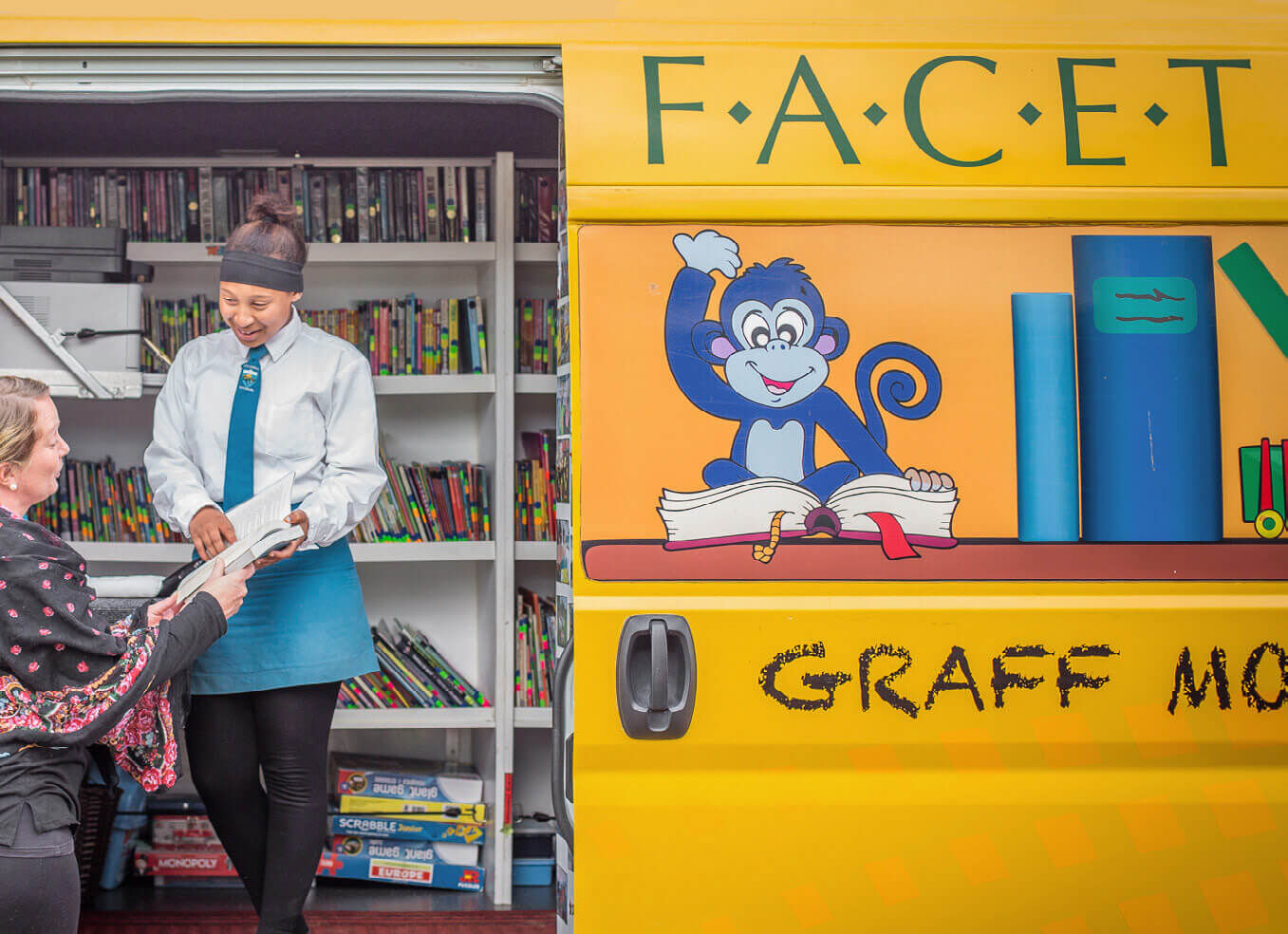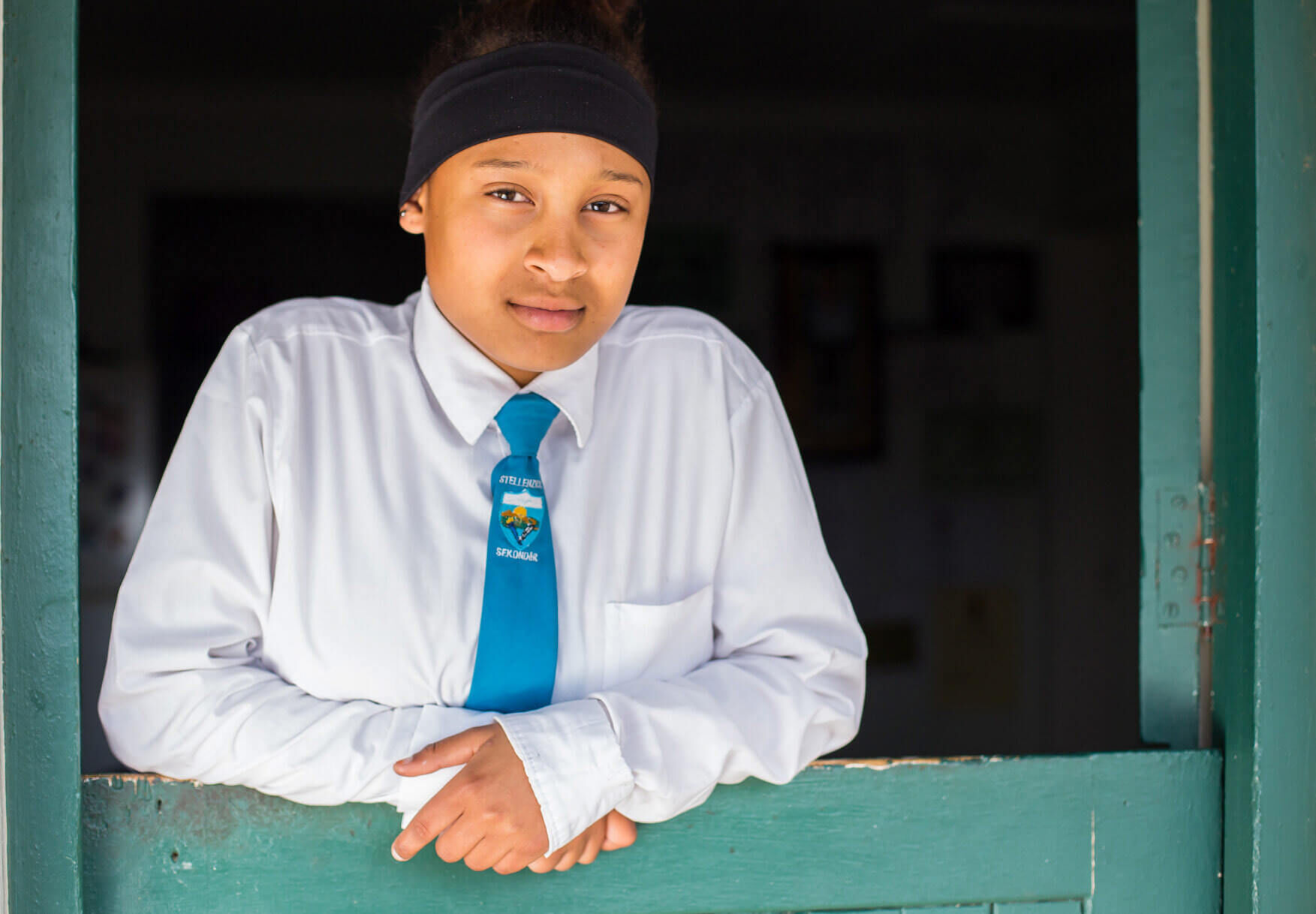Daring to Dream with the FACET Foundation
THE HOPE OF A BRIGHT FUTURE
“Imagine you see everything in the world in black and white, and then one day you suddenly see these bursts of colour.” This is how Chanelle Daniels, a 13-year-old schoolgirl from South Africa’s Cape Winelands, describes how the Pebbles Project and Laurence Graff’s foundation, FACET (For Africa’s Children Every Time), have transformed her life. “This is what it means to wake up in a world of possibilities,” she says, explaining how a long-distance educational programme has given her the strength to make decisions about who and what she wants to become, not limited by where she comes from.
There is no doubt that South Africa’s wine country is easy on the eye. It’s home to rolling mountains, vast blue skies and acres of verdant vineyards, which, of course, produce some of the world’s great wines. But that magnificent scenery disguises profound social problems – and, in particular, the troubling heritage of the “dop” system. Under this arrangement, farm workers received some of their wages in an apportionment of wine. Although this practice was pronounced illegal in 1960, the law wasn’t properly enforced until the Nineties. Several generations after the system was officially stamped out, the enduring effects of dependence on alcohol remain and its associated societal injustices are far more difficult to erase.
The Pebbles Project was established to tackle some of these deep-rooted challenges. Founded in 2004 by Sophia Warner, a British special-needs teacher, its original aim was to provide support to children suffering from foetal-alcohol syndrome, which is caused by women drinking heavily during pregnancy. But Warner soon realised there was a need to help more youngsters in these communities to prosper, not just those who experience barriers to learning.
Most of the project’s beneficiaries are the children of workers who live on the wine farms, often in challenging circumstances, and who suffer from a lack of access to education, health and other essential services. Based on the Villiera wine estate, it focuses on what it sees as the five pillars of a child’s life: as well as access to education and healthcare, it encourages good nutrition, fosters community engagement and ensures youngsters are protected and cared for.
Via this holistic approach, it improves not just their access to learning, but also tackles the factors that can undermine their ability to learn. All beneficiary children receive educational support from birth until they enter the world of work. The organisation has grown from supporting 384 young people in 2009 to supporting almost 1,500, with 48 facilities across the Western Cape wine region, and it’s now looking to expand into new areas. Over the course of the year ahead, Warner also plans to establish a central kitchen where fresh food can be prepared for 700 children every day and to create opportunities for families on the farms to grow fruit and vegetables to supply the kitchen as a community income-generation project.

The environment and resources provided by the Pebbles Project are vital in supporting children’s learning opportunities, which is where FACET stepped in, helping to deliver these benefits to a greater number of youngsters. FACET’s Graff Mobile Learning Centres – which comprise two computer labs, one book-and-DVD library, a multi-purpose vehicle and a mobile classroom – tour the wine farms, providing educational programmes and support. This not only ensures that children such as Chanelle have access to computers, but that they thrive in subjects such as mathematics and literacy as well as life skills.
“We don’t have a computer at home and my parents have never used one,” Chanelle explains. “I’m so lucky to be able to go to After-School Club, because I can use the books and work on a laptop, then print everything out. My school marks have definitely improved.” Chanelle’s nearest public library is six miles away, in Stellenbosch, and her parents would otherwise need to pay for a taxi there and back. “By the time they come home from work, they know I will have finished all my homework. And the best thing is, I don’t have to travel – the Mobile Learning Centre comes direct to the farm.”
Having first entered the Pebbles Project programme through its early-childhood development programme aged just three months, Chanelle will continue to be supported to ensure she develops into a capable, independent and confident young woman. While gender-based discrimination in terms of access to school does not constitute a significant problem in South Africa, female pupils are nonetheless more at risk of experiencing violence and abuse in the school context. A recent study by the Centre for Justice and Crime Prevention revealed that five per cent of girls at secondary school were likely to have been sexually assaulted or raped. Understandably, the experience of violence can result in a fear of attending school and a consequent failure to fulfil academic potential.
“Starting high school this year has been a challenge,” confirms Chanelle. “It’s hard not to give in to peer pressure, and there have been a few instances of bullying. My self-esteem took a bit of knock and, some days, I just didn’t want to go to school.”
Issues such as these are addressed via FACET’s life-skills programme, which encourages young people to discuss self-esteem, leadership, and even child-trafficking.
“Through the Graff Mobile Learning Centre, I found my confidence and my voice.”
Chanelle smiles. “I now understand that my identity is separate from my friends’ and my parents’. Now I have the courage to choose and to say ‘no’ when necessary.” This very practical empowerment is part of the transformation that Chanelle likens to a life switched from black-and-white to colour. “Working so hard on my maths is helping me achieve my dream of becoming an accountant,” she says proudly. “Imagine that!”
Thanks to the Pebbles Project and FACET, this dream really is achievable. One beneficiary, who hails from the same farming community as Chanelle, is currently completing his Bachelor’s degree in education at Stellenbosch University. And the approach of enriching one child’s life at a time is proof of just how far within their community the ripple effect can be felt.
About our work in South Africa
The main emphasis of the Pebbles Project is education. Working with children and families in the Winelands farming communities in the Western Cape, the charity focuses on the entire life of the child and the challenging circumstances in which they live in order to make a significant and lasting difference.
Since the inception of the organisation in 2004, the Pebbles Project has had an impact on more than 4,000 children and their families in areas including education, nutrition, health, community and protection. Through the Pebbles Owethu Clinic, a full range of critical wellness and health services is provided to the children and wider communities.
For more information please visit pebblesproject.co.za and facet-foundation.org

